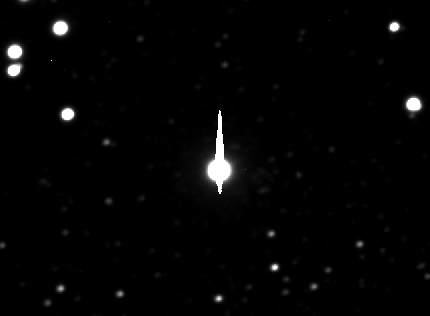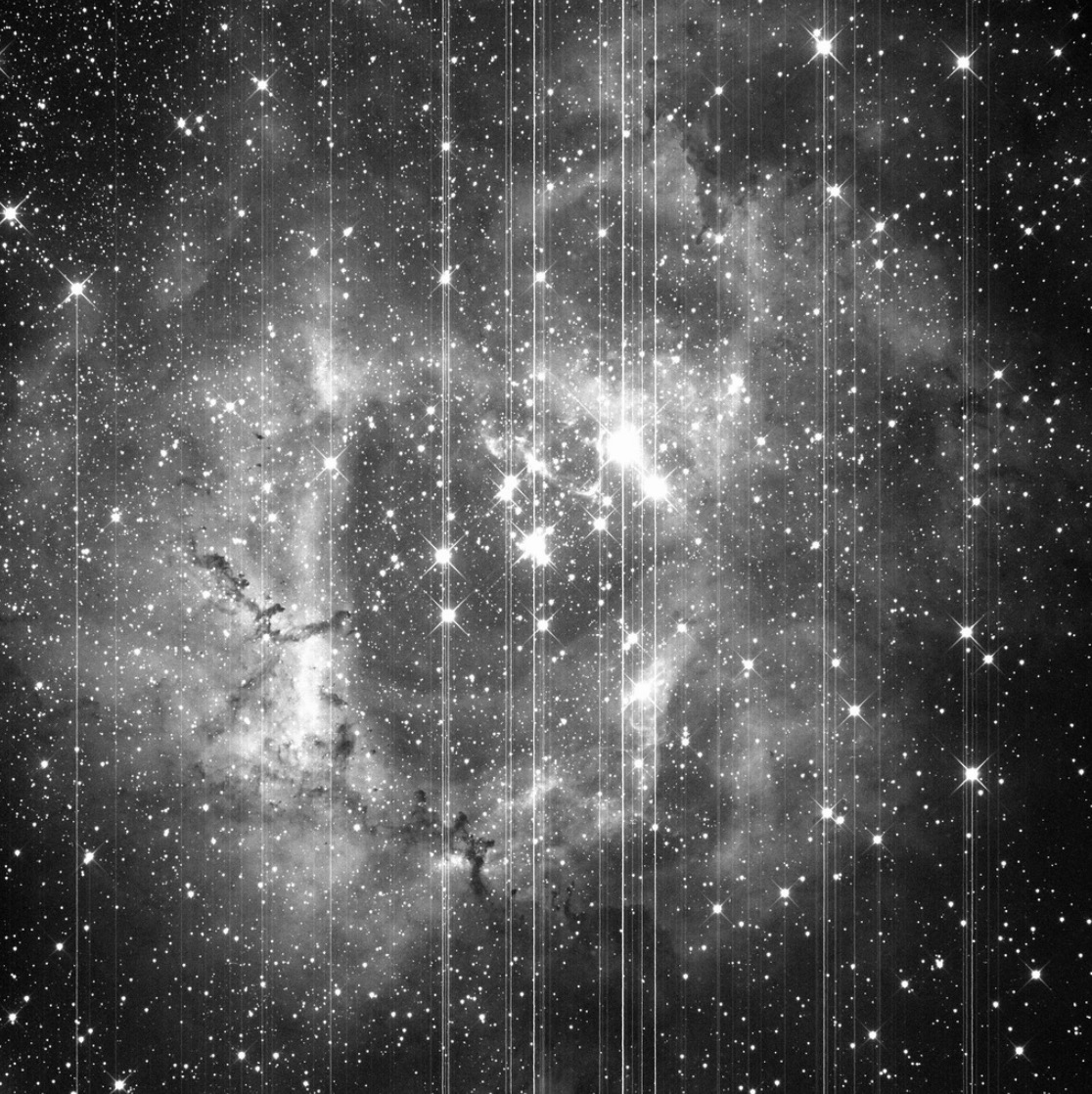
A common problem caused by large aperture telescopes and having good seeing conditions is that the exposure time though a particular filter can over-expose the sensor if the target object is particularly bright or the exposure time is too long.
Each pixel on a CCD sensor has a maximum light detection capability. Once this is reached, then the pixel is said to be saturated and the additional light will overflow and leak to the adjacent pixels. This causes an artefact that unfortunately cannot be fixed.
The solution is to use shorter exposure times to avoid saturation.
Unfortunately, we are not able to offer refunds if your images are saturated. You should use the appropriate exposure time depending on the brightness of the object and the size of the telescope.
Issues with anti-blooming
All our cameras are equipped with anti-blooming technology, preventing in most cases the appearance of so-called blooming, as shown in the image above.
We've recently seen images, especially coming from CHI-4, affected by severe blooming. Severe blooming affects the entire column of the CCD, in correspondence to bright bright stars, as in the image below:

If you see this happening, please let us know and we will refund the cost of the entire request. You will be advised not to image the same object with the same telescope, as the issue is likely to appear again.